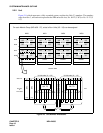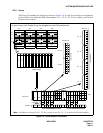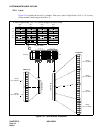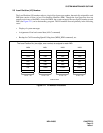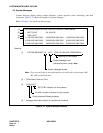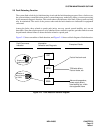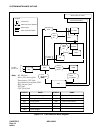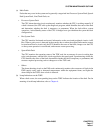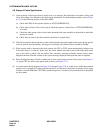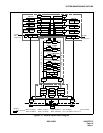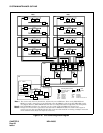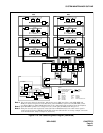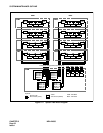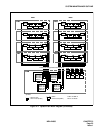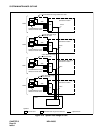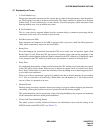
CHAPTER 2 NDA-24300
Page 18
Issue 1
SYSTEM MAINTENANCE OUTLINE
2.6 Range of Faults Specification
(1) Upon receiving a fault report from a station user or an operator, the technician can assume a faulty card
exists if the range to be affected by the fault can be determined. For the detailed procedure, refer to Chap-
ter 5. Use the following actions to check the MDF:
(a) Check the LENS of the reporter (Station or ATTCON/DESKCON).
(b) Check other circuits of the circuit card in which the reporter (station line or ATTCON/DESKCON)
is located.
(c) Check the other groups (other circuit cards mounted in the same module) in the module in which the
reporter is located.
(d) Check lines in each of the other modules on the basis of plural lines.
(2) If the fault cannot be detected by the system (a fault related to the speech path such as noise during speech,
one-way speech, speech inability), the range of (a) through (d) (itemized above) should be limited.
(3) When a major fault is detected in the dual systems, the CPU or TSW system automatically changes over
if the fault range is (c) and (d). In this case, the whole module involved is placed into make-busy status
even if the fault is partial, and the station lines currently operating normally become faulty status.
Diagnose the fault from the content of the system message displayed and repair the fault as required.
(4) When limiting the range of faults, consider the system circuitry that consists of the control (see Figure 2-
16, where CPU 0 is active) and speech path systems (see Figure 2-17).
(5) As seen from the block diagrams in Figure 2-15 through Figure 2-18, if a fault occurs within the common
portions to be controlled, all other associated portions are affected by that fault occurrence. If the range
of faults is outside PIM fault, CPU/TSW system changeover is executed (only when the fault is detectable
by the system).



